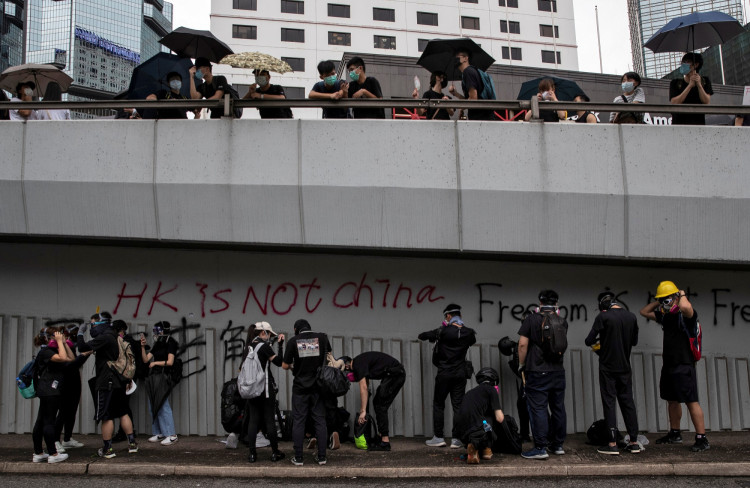The verdict on charges against a man arrested for carrying the slogan "Liberate Hong Kong. Revolution of our Times" at a 2020 protest will be announced Tuesday in a landmark ruling that could have long-term ramifications for how a China-imposed law reshapes the territory.
Tong Ying-kit faces life in prison but has pleaded not guilty to charges of promoting secession and terrorism, as well as dangerous driving. He is accused of ramming a motorcycle into police officers while carrying a flag proclaiming Hong Kong's "liberation."
China claims the national security law criminalizes "subversive" conduct, while critics claim that it silences dissent and that a decision to outlaw the slogan will restrict free speech.
Tong was the first individual to face charges under China's National Security Law.
In the court hearing, the meaning of "Liberate Hong Kong. Revolution of our Times" was vigorously contested, with references to China emperors, Marxism-Leninism, the ancient Chinese poet Li Bai, Malcolm X, rampaging Mongol barbarians and former nationalist leader Chiang Kai-shek.
According to the prosecution, the slogan was coined in 2016 by Hong Kong activist Edward Leung, a supporter of Hong Kong independence. Leung is currently serving a six-year prison sentence for rioting.
During the 2019-2020 protests that paralyzed the city, millions flocked to the streets to denounce what they saw as a clampdown by China's Communist Party officials on the city's constitutionally guaranteed liberties. The slogan was everywhere.
As part of a binding agreement with Britain, when Hong Kong was restored from British to Chinese rule in 1997, China's Communist Party leadership committed to allow the city to keep its judicial system as well as a wide range of autonomy and freedoms.
But China passed the National Security Law in June 2020, which lawyers and legal experts predicted would radically alter the territory's legal system.
Trials, for example, can be held in secret and without a jury. Judges can be hand-picked by Hong Kong's chief executive, who reports directly to China.
Since the law's enactment in June, more than 100 people have been arrested under its provisions.






